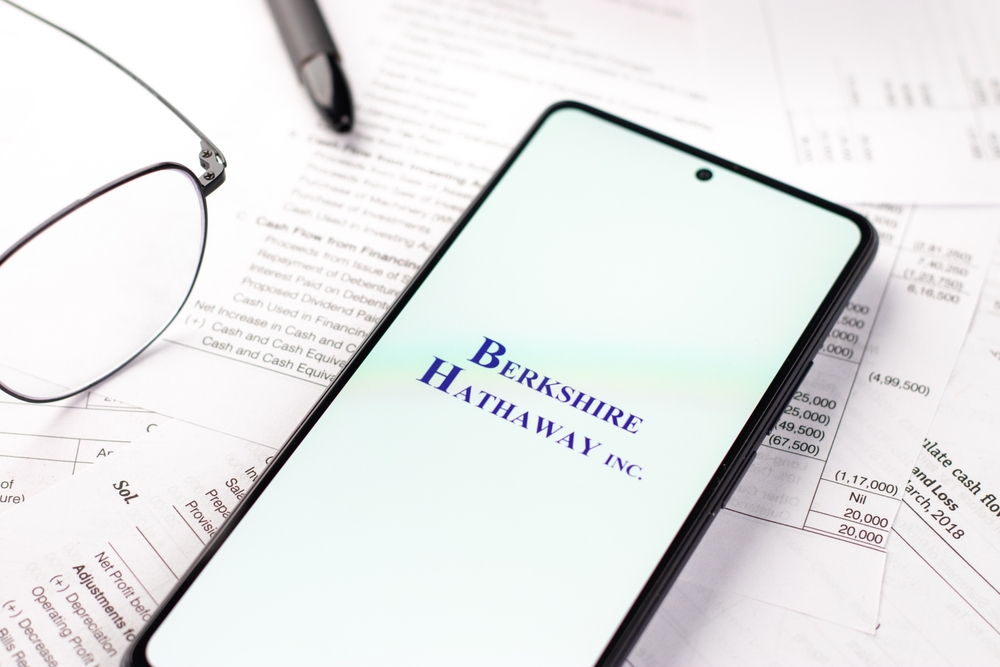Would you like to own a stock that looks a lot like the broad U.S. economy?
Better yet, how about a stock that looks like the fastest-growing sectors of the economy?
I’ve got one for you. And it’s firing on all cylinders at the moment.
I’m sure you’ve heard of it: Berkshire Hathaway (NYSE: BRK-A), the conglomerate run by probably the most famous investor of all time, Warren Buffett.
Berkshire has a market cap of about $780 billion, which makes it the seventh-largest publicly traded company in the world.
It had revenue last year of about $302 billion, making it the 15th-largest company on the planet by revenue.
Diversification at Its Finest
But unlike other corporate behemoths like, say, Apple (Nasdaq: AAPL) or Saudi Aramco, Berkshire is not limited to one industry.
In fact, it operates no business at all. It owns other companies, either outright – such as insurer Geico and the freight railroad BNSF – or partially through common stock.
Berkshire is extremely diversified. And as I wrote above, it’s got large stakes in some of the most dynamic economic sectors.
As for Berkshire’s stock portfolio, just under half is invested in information technology. This is primarily through Apple, the world’s largest company.
About 26% of Berkshire’s stock holdings are in banks and other financial companies. Those include Bank of America (NYSE: BAC) and American Express (NYSE: AXP).
About 12% is in consumer staples, including Coca-Cola (NYSE: KO) and Kraft Heinz (Nasdaq: KHC).
And energy makes up about 11% of the stocks Berkshire holds. Some of the major holdings in that sector include Chevron (NYSE: CVX) and Occidental Petroleum (NYSE: OXY).
Berkshire owns several insurance companies, including Geico, Alleghany Insurance and reinsurer General Re.
Buffett absolutely loves insurance companies because they provide a steady flow of cash – via the premiums you and I pay for car insurance, home insurance, etc. – that hasn’t yet been paid out in claims. That’s the float, and he can invest it in companies he believes to be undervalued by the market.
That brings me to Berkshire’s recent performance…
The company posted a $36 billion profit in the second quarter. That number is a bit deceptive because it counts unrealized gains in its massive stock portfolio. Unrealized means the value of the portfolio increased, though the stocks were not sold. Remember, Buffett is not a trader. Far from it. After all, his preferred holding time for a stock is “forever.”
Berkshire’s operating earnings in the quarter – which track actual cash coming in more closely than profits do – were about $10 billion, up about 8% from where they were a year ago.
Major Outperformance
As I wrote above, Berkshire is so diversified that it resembles the broader U.S. economy. And this year it’s performing similarly – if you use the S&P 500 Index as a stand-in for the economy.

So why buy Berkshire if it’s performing just like the S&P 500? After all, you could just buy an exchange-traded fund that tracks the index, right?
Well, long term, Berkshire has crushed the S&P 500… by a lot.
Since Buffett assumed the Berkshire helm in 1965, the stock’s gains have been more than 153 times those of the S&P 500. That’s enough to have made you $355 million on a $10,000 investment 58 years ago.
How is that possible if Berkshire’s holdings look a lot like the broader economy?
Well, it’s probably because, unlike most investors, Buffett doesn’t sell in market downturns. He holds. And often he’s a bear market buyer. When he sees good companies beaten down by a sell-off – and hence undervalued – he buys them cheap.
Of course, Berkshire’s stock is hardly cheap itself. As I write this, a class A share goes for about $540,000.
But to enable ordinary investors to participate in its success, in 1996 Berkshire created a class of B shares. These shares are equal to 1/1,500th of the A shares. So a B share right now should cost about $360.
But due to supply and demand, sometimes the two classes vary from this ratio of 1-to-1,500.
Right now, that’s the case. And B shares are going for around $356, a more than 1% discount.
So if you want to anchor your portfolio with a solid stock that offers diversification and, if history is a precedent, great long-term value, you might add a few Berkshire B shares (A shares, too, if you’re lucky enough to be able to afford them) to your own holdings.
And full disclosure: In my retirement account, I own shares of Berkshire Hathaway that I bought a few years ago.
I wish I owned more.
